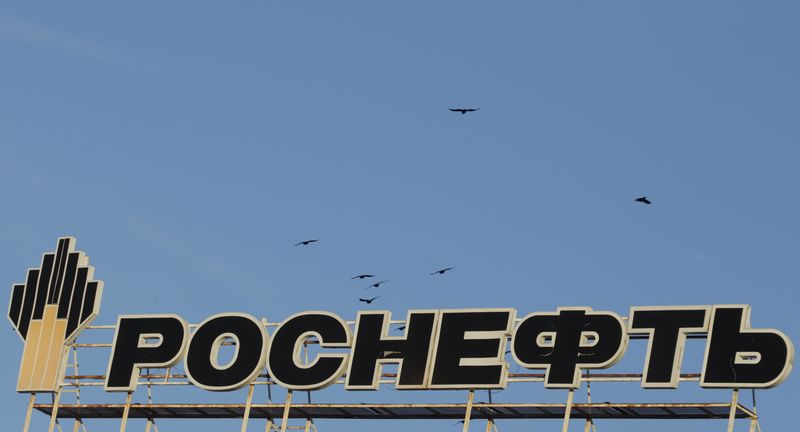By Vladimir Soldatkin
MOSCOW (Reuters) - The ambitions of Kremlin-controlled oil champion Rosneft (MM:ROSN) to boost its global reach have been reined in by U.S. authorities, which torpedoed its acquisition of a Morgan Stanley oil trading business (N:MS).
Rosneft, headed by Igor Sechin, a long-standing ally of Russian President Vladimir Putin, said on Monday that the deal was terminated because of the refusal by U.S. regulators to grant clearance.
"Having invested substantial efforts in the deal, the parties regret that it could not be completed," said Rosneft, in which BP (L:BP) holds a 20 percent stake.
Morgan Stanley also said that the deal was terminated and that it will now consider a variety of options.
The collapse of the deal, valued by sources at between $300 million (192 million pounds) and $400 million, is yet another blow for Rosneft after its partners, including ExxonMobil (N:XOM), withdrew from projects to develop Arctic offshore oil deposits following the introduction of Western sanctions over the Ukraine crisis.
The Morgan Stanley deal was agreed in December 2013, when Sechin said that it would spearhead the company's growth in the international oil and products markets.
Since then, however, the West's sanctions and a plummeting oil price has prompted Rosneft to seek state support from Russia's National Wealth Fund (NWF).
The strained relations with the West have already forced German chemicals group BASF (DE:BASFn) and Russia's Gazprom Sources told Reuters in September that Rosneft might abandon the Morgan Stanley deal because sanctions had hurt its ability to finance the operations. The fall in its share price and the rouble's collapse have left Rosneft with a market capitalisation of $31 billion, against $45 billion of debt that was mainly incurred with last year's purchase of oil producer TNK-BP. Rosneft shares rose as much as 7 percent in Moscow trading, with investors encouraged by the end of the company's spending spree. The shares finished the day with a gain of 2.5 percent, against a 0.8 percent decline for the broader market (MCX). "Of course, it's not bad that Rosneft has stopped, at least here. If one has to buy something in such a difficult situation, one would not only have to ask for help from NWF but also from the riches of the entire motherland," Kapital portfolio manager Vadim Bit-Avragim said. Earlier in the day, the company said it had met a $7 billion loan repayment, partially easing fears among investors that Western sanctions could prompt mass defaults. (Additional reporting by Zlata Garasyuta and Katya Golubkova in Moscow and Lauren LaCapra in New York; Editing by Thomas Grove, Jane Merriman and David Goodman) 